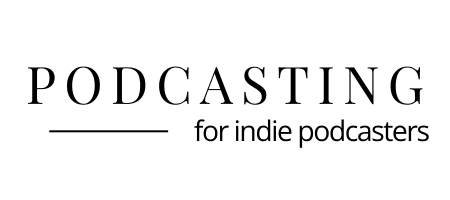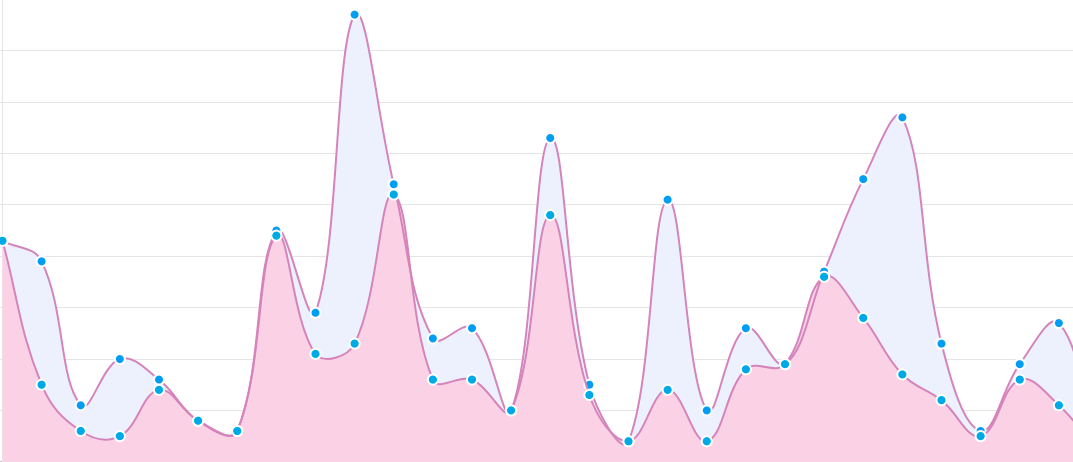
Why You Shouldn’t Use Zoom to Record Your Podcast Episodes, and What To Use Instead
Zoom is probably one of the most well-known conferencing platforms globally. And because of this, it tends to be the go-to default for a lot of podcasters to record their remote interviews.
This might seem great when you’re starting out, but, eventually, you’ll start to notice the limitations of Zoom and that the audio quality just isn’t as good as some alternatives out there.
So, in this post, I’m going to introduce you to a (free!) alternative to using Zoom to record your remote podcast interviews.
Podcast recording platforms
First off, let’s talk about podcast recording platforms. There are a variety of options available, each with their own features and benefits. Some of the most popular include Anchor, Squadcast, Zencastr, and Riverside.fm. These platforms offer a range of features, from simple audio recording to video conferencing and editing tools. Some are free to use, while others require a monthly subscription fee.
If you’re looking to create a video podcast, you’ll need to find the best video podcast recording software, for example, StreamYard. These tools allow you to record and stream high-quality video content, complete with custom branding and graphics.
What is Zoom?
First things first, let’s talk about what Zoom is.
Zoom is a cloud-based video conferencing platform that allows users to hold virtual meetings and webinars. It’s gained popularity over the last few years, especially during the pandemic, because it’s easy to use and allows people to connect from anywhere in the world.
However, it’s important to note that Zoom was not originally designed for recording high-quality audio for podcasts.
Pros of Zoom
- Easy to use – Zoom is user-friendly and straightforward to use, even for beginners.
- Lots of features – Zoom offers a wide range of features like screen sharing, virtual backgrounds, breakout rooms, and recording that can make your meetings more productive.
- Multiple participants – Zoom allows multiple participants to join a meeting, making it an excellent option for large group meetings, webinars, and online classes.
- Cross-platform compatibility – Zoom is compatible with multiple operating systems, including Windows, Mac, iOS, and Android, making it easy to connect with people no matter what devices they are using.
Cons of Zoom
- Limitations on free plans – Zoom’s free plan has some limitations, including a 40-minute limit on calls.
- User fatigue – With the rise of remote work and online meetings, many people experience “Zoom fatigue,” where back-to-back video meetings can be mentally exhausting.
- Subscription costs – While Zoom’s basic plan is free, its more advanced features and plans come with subscription costs, which can add up for podcasters that need to remotely record podcast interviews regularly.
- It was never designed for recording podcasts!
Is Zoom good for podcasts?
While Zoom can be used to record podcasts, it’s not the best option out there.
The audio quality on Zoom can be unpredictable, and it often suffers from background noise, echoes, and other issues that can make your podcast sound unprofessional. Plus, if your guest is using a built-in microphone on their computer, the sound quality can be even worse.
What is the best way to record a podcast remotely?
So, what’s the best way to record a podcast remotely?
The answer is to use a dedicated podcast recording platform. These platforms are specifically designed for podcasters, and they offer high-quality audio recordings that will make your podcast sound professional.
How can I record a podcast remotely for free?
The good news is that there are some great podcast recording platforms out there that won’t cost you a penny.
One of our favourites is Zencastr. Zencastr offers a free plan that allows you to record multiple guests, and it offers high-quality audio recordings that will make your podcast sound great. What’s great about Zencastr is that you can record your podcast interviews from multiple locations without compromising audio quality.
So, is Zoom good for recording podcasts?
The answer is no, not really. While it may be convenient for remote communication, it’s not the best option for high-quality podcast recording.
There are other options available that offer better audio quality and editing tools.
Why you shouldn’t record your podcast episodes on Zoom
There are several reasons why you shouldn’t record your podcast episodes on Zoom.
First, as we mentioned earlier, the audio quality can suffer. This can make your podcast sound less professional and less enjoyable for your listeners.
Second, Zoom isn’t designed specifically for podcast recording, so it may not offer the editing tools and features you need to produce high-quality content.
You’re also restricted by the 40-minute limit, unless you upgrade and pay for your Zoom account. This might seem like an ok expense for some, but if you’re just starting out with your podcast then you might not want to invest in a paid-for Zoom account just yet. You might think that 40 minutes is plenty to record an episode, but, it really isn’t.
You see when you and your guest both first log onto the call, it’s nice to have a chat first rather than dive right in. You might also want a quick debrief at the end of the episode. And there’s nothing more unprofessional than hurrying up your interview or cutting your guest short because you’re running out of meeting time.
The video on Zoom just isn’t what it is on other platforms. It isn’t bad quality, but when you start recording on a platform meant for podcast recording like Zencastr, you can immediately see that Zoom’s video recording quality is really lacking in comparison to software that was created for the intention of recording video for podcasts.
Finally, while it’s true that Zoom offers a reliable platform for remote communication, the audio quality can suffer when recording podcasts. This is because Zoom compresses audio files in order to save bandwidth, resulting in a lower-quality recording.
Conclusion
If you’re looking to record remote interviews for your podcast, while Zoom may be a popular choice for remote communication, it’s not the best option for podcast recording due to its limitations for producing high-quality audio.
To produce high-quality, professional podcast content, it’s best to use a platform specifically designed for podcast recording and our top recommendation for this is Zencastr.






